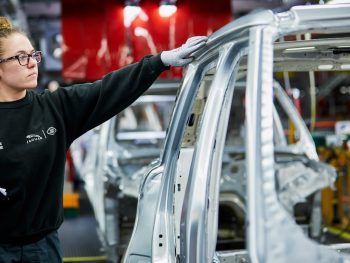UK auto industry pledges to address diversity shortfall
Some of the UK’s biggest automotive companies have pledged that women will represent 30% of their workforce within the next six years, in a bid to drive gender diversity across all roles and levels.

Just under 20% of the UK automotive sector’s workforce is currently female and the new report provides tools to improve gender diversity across all levels
Just under 20% of the sector’s workforce is currently female – and the Automotive Council, whose members represent 99% of British vehicle manufacturing and half of the UK’s automotive workforce, say addressing this shortfall is essential if it is to have future success.
The pledge is accompanied by a new best practice guide on ‘Shifting Gears: How to better recruit and retain women in the UK automotive sector’, which provides forward-thinking businesses across the industry – from car and commercial vehicle manufacturing to supply chain and the aftermarket – with the tools needed to improve gender diversity across all levels.
The report builds on the council’s launch last year of the industry’s first-ever Diversity Charter, whereby signatories commit to take action in eight key areas with the aim of accelerating progress across all aspects of a diverse, equitable and inclusive (DE&I) workforce within their own companies.
The council said delivering DE&I is critical, not just to deliver social change but to boost business performance. DE&I can lead to demonstrable improvements in productivity, supporting top talent recruitment; raising employee satisfaction, decision-making and creativity, and increasing both profitability and value creation.
The council also recognises that DE&I encompasses all aspects, including age, disability, ethnicity, neurodiversity, race, social mobility and sexual orientation – and its members are also continuing to implement additional measure to address any representation shortfalls that exist among these groups.
The new report comes as the Association of Fleet Professionals (AFP) launches a new committee to break down barriers in the workplace by promoting equality, diversity and inclusivity.
Mike Hawes, SMMT chief executive and chair of the Automotive Council UK Competitiveness and Business Environment Group, said: “With so much change taking place across the automotive sector, recruiting the brightest and the best is essential to the future success of the industry. The industry has often been perceived – and the facts back it up – as male dominated. We need to change this quickly; gender balance is not just about ‘doing the right thing’, it’s demonstrably good for business.
“The sector should always be representative of the communities in which it is based and the societies it serves so addressing gender imbalance is non-negotiable.”

